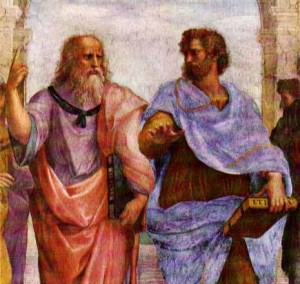Beargryllz
New member
- Joined
- Jun 7, 2010
- Messages
- 2,719
- MBTI Type
- INTP
A circle is as real as the number 3
A circle is as real as the number 3
Wouldn't you be an idealist if you believe circles exist? Or even if you believe that a circle could exist.

Not meaning to derail the thread, but we can't even agree on what exactly constitutes rational thought.
Could we agree that the nature of reality in its most basic form is the unraveling of a process? This wouldn't imply anything about the process, just that it unravels/unfolds continuously.
I'm talking about the division outlined by MacIntyre in Whose Rationality? Whose Justice? between the Classical-Christian tradition, the Encyclopedists who claim to follow the Enlightenment but don't actually believe it, and the Nietzscheans.Are you talking about justificationist philosophy vs eastern philosophies or pancritical rationalism?
I'm talking about the division outlined by MacIntyre in Whose Rationality? Whose Justice? between the Classical-Christian tradition, the Encyclopedists who claim to follow the Enlightenment but don't actually believe it, and the Nietzscheans.
Or Aristotle's theory of The Forms.
Is a perfect circle a form that exists beyond space and time, and the imperfect circles that we see illustrated in the world around us are just participating in "circleness"? Or, are circles abstracted concepts derived from our examination of the things we sense around us (In other words: without material things that appear circular, circles do not exist)?
